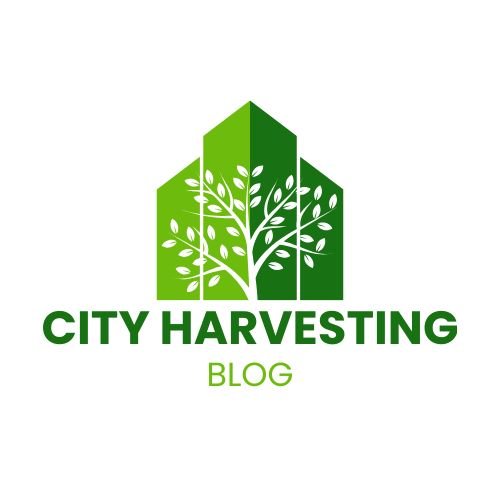Three effective community composting options for apartment dwellers include urban compost exchange programs with kitchen caddies and common area collection bins, subscription-based neighborhood services that allow cost-sharing between households, and apartment-friendly compost cooperatives utilizing compact balcony systems. You'll reduce landfill waste while contributing to local soil health and food security. Each approach offers unique benefits for your living situation, from doorstep collection to community-building opportunities that transform waste into valuable resources.
Thriving Urban Compost Exchange Programs for Multi-Dwelling Buildings

As urban populations continue to grow, innovative composting networks are transforming how apartment dwellers manage organic waste. You'll find these programs create impactful solutions for multi-unit buildings where traditional backyard composting isn't feasible.
These exchange programs typically provide kitchen caddies for collecting food scraps like vegetable peels, coffee grounds, and eggshells. Once filled, you can deposit your organic waste in designated collection bins in common areas. Clear signage helps everyone participate correctly.
Beyond environmental benefits of reducing landfill waste and greenhouse gas emissions, these programs build community engagement. You're participating in a collective effort that produces nutrient-rich soil for community gardens, potentially increasing local food security. By joining these initiatives, residents help divert food scraps from landfills while promoting sustainable waste management practices in their communities.
Some networks even offer incentives like garden produce or compost credits to encourage your ongoing participation.
Subscription-Based Neighborhood Collection Services That Connect Communities
While traditional municipal waste services often overlook organic materials, subscription-based composting programs have emerged as convenient solutions for apartment dwellers seeking sustainable waste management options.
These services offer doorstep collection, reducing your burden compared to community bins.
Convenient doorstep collection eliminates the hassle of traveling to community bins, making sustainable waste management effortless for urban residents.
You'll find options to share costs with neighbors, making these programs more affordable while fostering community engagement. In fact, some services allow two households to share one cart and split subscription costs.
Services like Block Bins and Collective Resource Compost provide specialized tools and accept a wide range of organic materials.
Even in small spaces like apartment balconies, you can participate in these programs.
Most subscription services offer educational resources to help you maximize composting efforts while complying with local regulations.
Apartment-Friendly Compost Cooperatives With Shared Resources

Apartment-friendly compost cooperatives represent a more integrated approach than subscription services, creating systems where residents share both responsibilities and rewards.
These cooperatives utilize compact composting systems that fit on balconies or in communal areas, making them ideal for limited living spaces.
The cooperative structure typically requires at least one manager who oversees training, organization, and quality control.
You'll find these initiatives often reduce waste management costs while building stronger community bonds among residents.
Setting up a cooperative involves regular maintenance through monthly work days and active communication between members. Community cooperatives frequently establish collection stations for compostable bags that simplify the gathering of food scraps without creating mess or odor issues.
The financial benefits extend beyond cost savings—many co-ops generate revenue by selling finished compost.
You'll also contribute to increasing property values while participating in an environmentally sustainable practice that transforms organic waste into valuable soil amendments.
Frequently Asked Questions
How Do I Prevent Fruit Flies in My Kitchen Compost Bin?
You'll prevent fruit flies by securing the lid tightly, emptying regularly, using a bin with charcoal filters, freezing scraps before composting, and balancing food waste with dry materials like paper or leaves.
Can Pet Waste Be Included in Community Composting Programs?
Most community composting programs don't accept pet waste due to health risks and regulatory barriers. You'll need specialized facilities like Lafayette's Great Bark Program that use compostable bags and separate collection bins for pet waste.
How Long Until My Food Scraps Become Usable Compost?
You'll see your food scraps become usable compost in 1-12 months depending on your method. Hot composting takes 4-6 months, passive composting 6-12 months, worm bins about one month once established, and electric composters just hours.
Who Maintains Liability Insurance for Community Composting Areas?
Liability insurance for community composting areas is typically maintained by government entities, non-profit organizations, private benefactors, corporate sponsors, or cooperative arrangements. You'll need to check with your specific community program for their coverage details.
What Permits Are Required to Establish a Building Composting Program?
You'll need local zoning approvals, possibly a Conditional Use Permit, state environmental permits, and building permits. Check if your building's zoning requires amendments to allow composting activities on the property.
In Summary
You've got options for composting, even without a yard! Whether you're joining a local exchange program, signing up for a subscription collection service, or participating in a cooperative, you're not just reducing waste—you're building community connections. Don't let apartment living stop you from contributing to sustainability. Take that first step today and you'll be amazed how easy composting becomes with these community-based solutions.





Leave a Reply